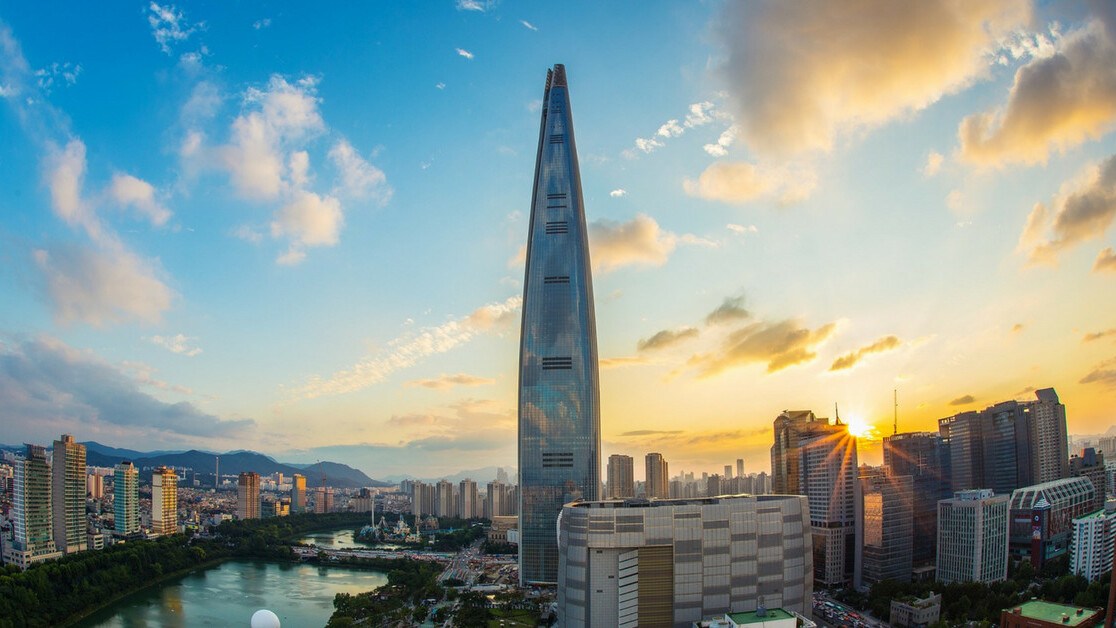
Seoul’s startup ecosystem is set to take on the tech world. The city is already home to 8,708 startups, 85 accelerators, and the country has a total of 10 unicorns (with the majority based in Seoul).
In terms of IPOs, while most markets across the world have taken a hit during the pandemic, Seoul’s burgeoning biotech scene has helped position the city as a leader. According to a recent article by the Financial Times:
“SK Corp … announced that it aimed to raise Won 959.3bn ($780m) by floating subsidiary SK Biopharmaceuticals on the country’s bourse next month. It will be South Korea’s biggest initial public offering since mobile gaming company Netmarble raised 2.7tn in May 2017.”
And the government is only looking to grow its startup success even more with the goal of reaching 20 startup unicorns by 2022.
It’s just this sort of ambition that’s set to put Seoul on the map as a global startup hotspot.
On the surface it all sounds like the right conditions, but if you’re an entrepreneur, investor, or a techie, should you run screaming like a K-pop fan at a boy band concert to Seoul right now? I spoke with a startup ecosystem expert, an accelerator, a startup, and an investor to find out.
Ambitious and government-backed
Seoul’s Mayor Park Won Soon has high ambitions for the city’s startup ecosystem. Last year he announced his goal to make Seoul one of the top 5 cities for startups in the world.
And this isn’t just lip service. Both the government and the city are putting their money where their mouth is. According to Forbes, South Korea has the highest government backing per capita of startups in the world. Meanwhile, the city of Seoul is planning to spend 12 trillion KRW ($9.9bn) of venture-capital to boost its startup economy.
What’s behind this massive investment?
In an interview with Startup Genome in 2019, In Dong Cho, then-Deputy Mayor for Economic Policy said, “Startups are a growth engine to break through an economic slowdown period. Conglomerates are a little stagnant. We need new innovative measures to break through and we think startups are that.”
But the city isn’t just throwing money into the abyss and crossing its fingers for a big return. Seoul Metropolitan Government announced last year that it would team up with Startup Genome to get the data and insights they need to grow successfully.
According to CEO Jean-Francois Gauthier, who’s had a front ring seat to the action:
“The national government has multiplied policies to help it grow. Everyone knows that’s important but no one acts as boldly as the national government and the Seoul Metropolitan Government to grow startups right now. The mayor recently announced a massive investment to become top five in the world — a very ambitious goal.”
A tech-driven city
South Korea in general and Seoul in particular is a leader in terms of tech adoption. While others may need to lead their population by the hand when it comes to new tech, Seoul’s population is already hooked up, connected, and over it by the time the rest of us get there.
It helps that the country has one of the fastest internet connections in the world. What’s more, its large pool of smartphone users is eager and willing to get their hands on new innovative ideas, making it a great spot for user testing.
According to Tim Chae, General Partner at 500 Startups, one of the reasons for the strength of its startup scene is that Seoul has been ahead of the curve in terms of tech adoption for a long time now:
“Seoul’s been a tech frontier — a future of what’s to come to the US — since the ‘90s. Whether it was high-speed internet, cell phones, games, esports, or microtransactions. I think that foundation is being realized to its potential today with the record amount of talented new entrepreneurs starting out.”
To bolster tech innovation even further, last year the government lowered patent fees for startups and the banks that provide IP financing for SMEs. This is all part of the government’s plan to spur innovation by removing barriers.
Seoul is now in the top 20 ecosystems
One major asset that will definitely drive the city’s push towards greater tech innovation is its talent pool. According to the OECD, South Korea has the highest percentage of people between 24 and 35 who’ve completed tertiary education in the world and scores extremely high in terms of performance on standardized tests. Seoul itself is home to over 50 universities.
These conditions make it clear why Startup Genome’s 2020 Global Startup Ecosystem Report ranked Seoul in the top 20 ecosystems this year.
According to Gauthier, the city’s abundance of talent is one of its biggest strengths: “Seoul is a great economy and a great power in terms of producing innovation. It’s basically the world’s top at R&D and this means that the country has a lot of great technical talent. You also have great universities to form that technical talent and that’s really one of the foundations of a productive startup ecosystem that creates new large fast-growing companies.”
“The highest potential for Seoul is to learn to bring entrepreneurship to their intellectual property, innovators, technical talent, and their traditional R&D. This means stopping to create talent for large corporations and patents for licensing and instead encourage this young talent to come and create a new business and a full product. Not just sell the license and not to just go work for a company, but to actually create a company that will be bigger,” Gauthier said.
So, all in all, what founders can expect from Seoul is a young talent pool that’s highly educated, innovative, poised to make an impact, and hungry for opportunities.
Also watch: How Seoul will become one of the world’s best startup cities
Efforts to make it easier for foreign entrepreneurs
In the past, one of the biggest barriers to growing the city’s startup scene has been attracting foreign entrepreneurs. Difficult visa processes, bureaucratic hurdles, language barriers, and access to much-needed networks kept international incorporation rates low.
To attract more foreign-led startups, the government has since introduced new policies including creating an easier visa program for startups (OASIS) and an international startup accelerator program called K-Startup Grand Challenge.
Apparently, these changes have been just what the country needed to open up the gates. According to Kyunghwan Lee, Team Leader of the Global Startup Team for the National IT Industry Promotion Agency(NIPA):
“Each year, about 1,500 startups from a hundred countries participated in the global accelerating program, K-Startup Grand Challenge. For KSGC 2020, we have received 1,500 applications so far, and we expect to get 2,000 applications overall. The reason we are getting many applicants is the active support of the government, even though we are in the COVID-19 pandemic situation. This is the biggest difference from Silicon Valley, which mainly has private accelerating programs. The grand challenge program is supported by the Ministry of SMEs and Startups and National IT Industry Promotion Agency, and the Ministry of Science and ICT actively supports venture business as well.”
Still, there are still a number of challenges international startups face.
“We consider the language barrier and networking as the biggest challenge. First of all, all the documents of the public institutions are written in Korean, so South Koreans are needed for foreign companies to start a business in South Korea.
To make South Korea a good place to start a business, we operate a coordinator system to support startups in Visas, labor, human resources, and an intern system to teach them the Korean culture and business. Moreover, when startups come to South Korea, they will be able to have the opportunity to meet major local companies, like Samsung, LG, and more. During the accelerator program, we help startups grow by organizing networking events to meet local conglomerates, organizing a Demo day, and more. This is to say that we support startups in terms of language and network so that they can focus only on business.”
For those startups that decide to stay in Seoul afterward, the program has created a follow-up to help them keep growing and scaling.
“After the 3-month K-Startup Grand Challenge is over, about half of the participating startups incorporate. From this year, we are going to operate a “Scaleup and Open Innovation program” so that we can keep supporting startups that incorporated after the KSGC program. This follow-up program will focus on investing alumni and cooperating with Korean conglomerates. Moreover, if startups participate in the KSGC program, they will receive D-8-4 which will help them do business smoothly.”
Challenges and benefits of starting your business in Seoul
TPS Engage, one of the KSGC’s past participants, is an Adtech solution that makes Digital Out of Home ads more dynamic and effective by enabling contextual and programmatic advertising.
Reflecting on the company’s experience in Seoul, Matei Psatta, the company’s Co-Founder & CMO shared:
“Seoul is quickly catching up with the traditional global startup hubs, with the recent years showing that they have both the resources and the agility to quickly become possibly the best launchpad for international startups targeting this part of the world. Programs such as KSGC manage to make this transition extremely smooth.”
One thing to keep in mind:
“Seoul and Korea offer a very unique experience for international startup founders. Despite the language and cultural barrier, you will soon find that the community is extremely tightly connected and that not many things happen without having a reference from the right person. In addition, in our case, in the B2B landscape, the fact that the chaebols (Korean conglomerates such as Samsung, LG, CJ, Hyundai, SK Telecom, and others) control the vast majority of large scale business dealings can be both a blessing and a curse.
It took us quite some time to understand it, but once we did, we started collaborating on projects with most of these companies. If you learn how to navigate such a company’s internal politics and ecosystem, the benefits are boundless. On the opposite spectrum, not knowing how to properly set up communication channels with them might have you excluded from potential deals.”
Which types of startups will excel in Seoul’s ecosystem?
According to Startup Genome’s 2019 report, Seoul already had the 4th largest gaming industry and the 7th largest Adtech industry in the world. But, with large corporations making it difficult for startups to compete in this environment, Seoul now has its sights set on expanding its AI, Fintech, and Life Sciences sectors.
Speaking with the experts, it’s clear why the city has chosen to focus on these areas.
AI
According to Lee the biggest percentage of startups applying for KSGC2020 come from the ICT industry including AI, 5G, etc.
“Korea has the greatest ICT infra in the world and this is a reason they apply to the program. However, the biggest reason is that the world ICT leading companies, like Samsung, LG, etc., have headquarters in Korea and startups look for the chance to work with leading Korean companies. ICT based startups are attracted to Korea because it has a great startup ecosystem for IT companies, such as Kakao, Coupang, etc., to grow business,” he said.
Fintech
As a major financial hub in the region, it makes sense that Seoul would capitalize on this strength to stimulate its Fintech innovators. As a long time investor in Seoul’s startups, Chae has seen this trend coming.
“Korea has been experiencing a boom in Fintech for the last 5 years, and I believe it will continue to thrive with the continued support of the government. There are a lot of fundable opportunities that approach many different verticals and sectors so we try to stay agnostic as much as possible.”
Life Sciences
Just like with Seoul’s FinTech ambitions, building out its Life Sciences sector really just makes sense. The country has a large base of highly skilled medical talent and has made huge investments in its R&D. In fact, South Korea’s R&D spending to GDP ratio is the highest in the world.
We’ve already seen proof of the strength and agility coming from the city’s BioTech and MedTech startups during the pandemic.
According to Gauthier, focusing on the, “Deep tech, life sciences and BioTech startups that build on that really strong and world-class R&D and technical talent,” will really help it succeed in creating a strong ecosystem. “Seoul has so much more to offer in these areas.”
Investing Gangnam style
In the past, one of the barriers to startup growth was a lack of investment opportunities. Now the city is experiencing a boom in startup funding but it still has a long way to go.
These conditions could create great opportunities for investors who want to get their foot in the door.
As Eui Seung Kim, current Deputy Mayor for Economy in Seoul, mentioned during his recent keynote at TNW’s Ecosystems Couch Conference:
“Korea has a total of 10 unicorns but we have many other excellent startups that are still unknown to the world. I believe that cracking the overseas market is the most essential element for startups’ sustainable growth. To support our startups going global, we are trying to find reliable partners abroad, such as investors, startups, and big global companies to pull and help Seoul-based startups to settle in new markets.”
According to Gauthier, what Seoul needs right now is fewer grants and more angel investors:
“There’s been a lot of investment action but mostly in terms of grants. We see that the biggest gap is in business angels investing in startups and bringing their expertise, whether they are executives from corporations that can bring industry expertise and contacts, or an entrepreneur who knows how to build a business. Bringing this to startups at a very early stage to really guide them in the right direction is essential and grants don’t do that.”
In his view, building a powerful Angel community will be critical.
For startups looking to gain funding, Matei from TPS Engage shared:
“It’s definitely different than what we see in the Western world. The VC landscape is growing rapidly in Korea and there’s also a plethora of M&A opportunities due to the large number of companies with various startups initiatives (Samsung Next, Shinhan’s Future’s Labs, Hyundai Accelerator, LG Tech Ventures and many more). Excluding these, the majority of traditional VC funding, however, does go to Korean startups, due to both the government encouraging this and the language/cultural barrier. That doesn’t mean it’s inaccessible, quite the opposite, it just takes a bit of adapting to the local business culture in order to find the right partners for you,” Matei said.
For international VCs considering investing in Seoul based startups, Tim Chae advised:
“Get familiar with the laws and regulations of investing in Korean domiciled companies (many in Korea will choose to stay a Korean domicile due to a myriad of benefits provided to startups by the government).
Founders are extremely talented and the best of the Korean founders can compete with anyone in the world. However, the knowledge of western market expansion due to cultural differences is still a challenge for the broader ecosystem.”
Get the TNW newsletter
Get the most important tech news in your inbox each week.






